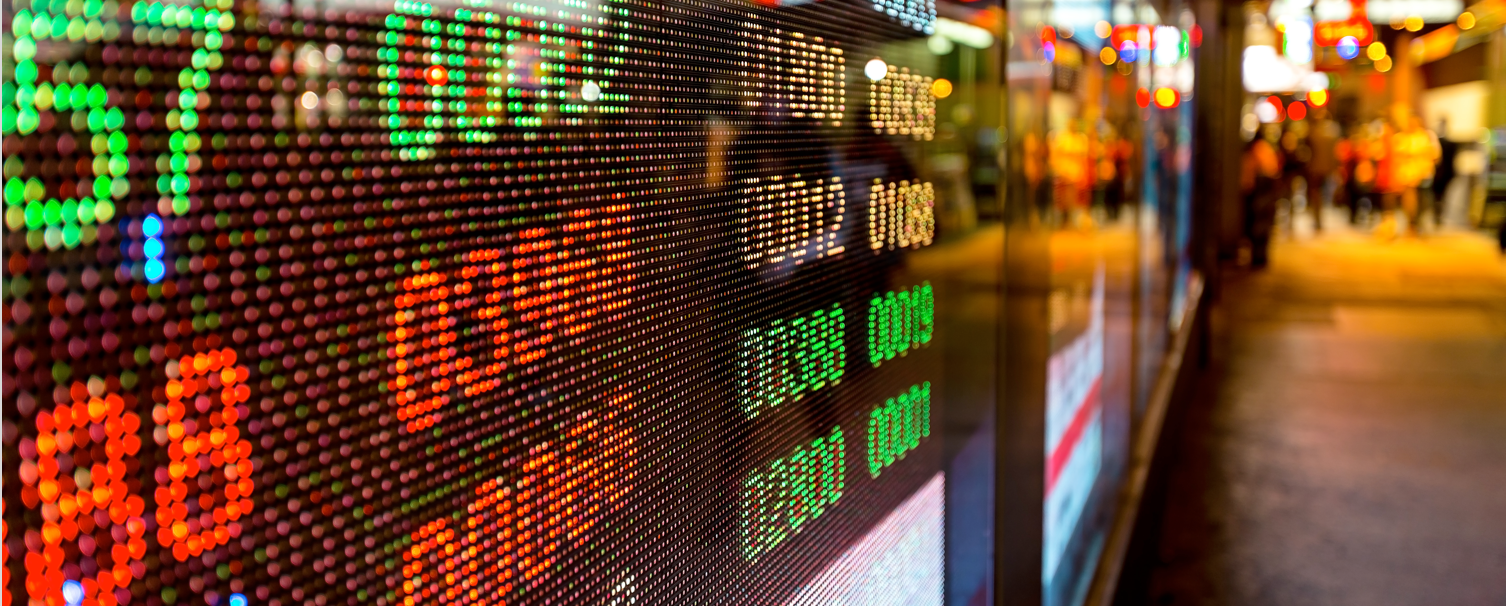With one eye on the history of the market, how concerned should we be about Coronavirus?
It has been impossible to ignore the noise around the Coronavirus lately, with the media narrative shifting more from the initial outbreak to the possibility of a pandemic, and the effects this will have on the worldwide economy. We may be seeing a preview of the coming weeks and months, as the markets begin to correct with drastic falls in the last couple of day.
The question, however, remains for investors. With an eye on similar events from history, do investors have adequate reason to be nervous? Or is the Coronavirus just a small blip in a long term waiting game?
Cases continue to climb around the world, and its effect on the stock market is impossible to ignore, with historic single-day losses and volatility increasing around the world. The central bank’s involvement seems to have temporarily stemmed the losses, however, the uncertainty around the virus is being completely mirrored in worldwide markets, with investors not sure what will happen next.
Looking for an Wholesale* investment that benefits from market volatility and dispersion?
In the middle of an 11-year bull run and historically high valuations, many continue to worry the virus is a catalyst for the next big correction. How much cause there is for worry is still unclear and whether it’s due to speculation or if there’s something behind this. One thing is for sure, the markets worldwide are clearly reading the news, and getting nervous. The question, however, remains for investors. With an eye on similar events from history, do investors have adequate reason to be nervous? Or is the Coronavirus just a small blip in a long term waiting game?
The tumble of the market could be the result of speculation. It’s an unverifiable but growing view that the spread of the virus outside of China will lead to a bigger market fall. The Coronavirus might also be the result of assigning a cause after the fact.

Gauged by the market’s performance during pandemics such as SARS, Ebola and avian flu, the Coronavirus doesn’t necessarily qualify as a market correction or a black swan event.
However as we’re eleven years into the bull market, a virus outbreak could have a bigger impact than it would have had in the beginning of the bull run.
“Risk velocity – the pace at which major risks and ‘black swan’ events can affect asset prices – is elevated in today’s markets compared to 10 years ago for three key reasons,” said Seema Shah, chief strategist at Principal Global Investors, in a research note.
Shah pointed out Wall Street was more vulnerable to a black swan due to our current social-media-driven news cycle, the interconnectedness of global supply chains and a pricey stock market.
“External shocks can derail economic trends and abruptly alter market sentiment. Not all risk is economic policy or monetary,” wrote David Kotok, chairman and CIO at money manager Cumberland Advisors, in a recent research note.
The concept of Black Swan events dates back to the 2nd-century Roman poet Juvenal who said: “rara avis in terris nigroque simillima cygno” which means “a rare bird in the lands and very much like a black swan”. This expression was common until the 16th century in London as a statement of impossibility – presuming all swans must be white – but in 1697, Dutch explorers discovered that black swans did in fact exist in Australia. The term subsequently came to signify the theory for the impact of unexpected events on markets and economies which was popularised by Nassim Nicholas Taleb in his book The Black Swan: The Impact of the Highly Improbable.
Taleb’s three defining attributes of a black swan event:
1. An event that is unpredictable.
2. An event that results in severe and widespread consequences.
3. An event that, after its occurrence, people will rationalise as having been predictable
We have seen several events that fit the black swan definition in the past 30 years. One of the most notable examples was the ‘Dotcom’ Crash when The NASDAQ lost 78% of its value. The 1980s and 1990s gave birth to many internet companies launching that were severely overvalued and, when they crashed, resulted in significant losses.
Another significant black swan was the 9/11 attacks on September 11, 2001 with stocks plummeting in the wake of the tragedy. $1.4 trillion in stock market value was lost within a week.
Most recently, the 2008 Global Financial Crisis wiped out over $10 trillion in the global equity markets following Lehman Brothers’ bankruptcy.
Black swans have the potential to have huge implications for the world economy.
But it is also worth remembering that the market often recovers from short-term events and that the impact of events are often overstated. Long-term investors have been rewarded in the past by holding on to long term investments through market fears and corrections. Despite facing challenging conditions such as the Black Swan events mentioned above, overall the Australian equity market has compounded at over 9% per annum every since 1992.
Put simply, if you invested around $1,000 in 1992 and stayed invested in the index, your investment would be worth $11,855 today. Investing is often about managing out good and bad days, but challengingly, the biggest daily gains in the equity market often follow or precede historically bad days. While if you could avoid historically bad days by selling, this would possibly mean missing good days. As Warren Buffett would remark, “Our favorite holding period is forever.”
Whether or not we will see a correction – or indeed a Black Swan event – the Coronavirus might very well be another obstacle for investors when they can’t pull the same levers as they used to at the beginning of the bull run. Worst case scenario, the virus could be a game changer.
Whether an investors sentiment is Buy, sell or hold, the fact remains that volatility is certainly coming off incredibly low levels and for the last six months we’ve been advocates for having hedges in our portfolios.
Over the last 6 months we have been looking at investments that provide a hedge, or benefit from market pullbacks and increasing volatility. We currently have a very interesting one that is created by investment banks for hedge funds and used by sophisticated investors.
While most portfolios are set up for a predictable, stable market, we are living in unusual economic times. Previous similar investments have been popular with people looking to set themselves up with a unique opportunity to benefit from the uncertainty.
General Advice Warning
Any advice provided by Reach Markets including on its website and by its representatives is general advice only and does not consider your objectives, financial situation or needs, and you should consider whether it is appropriate for you. This might mean that you need to seek personal advice from a representative authorised to provide personal advice. If you are thinking about acquiring a financial product, you should consider our Financial Services Guide (FSG) including the Privacy Statement and any relevant Product Disclosure Statement or Prospectus (if one is available) to understand the features, risks and returns associated with the investment.
Please click here to read our full warning.




